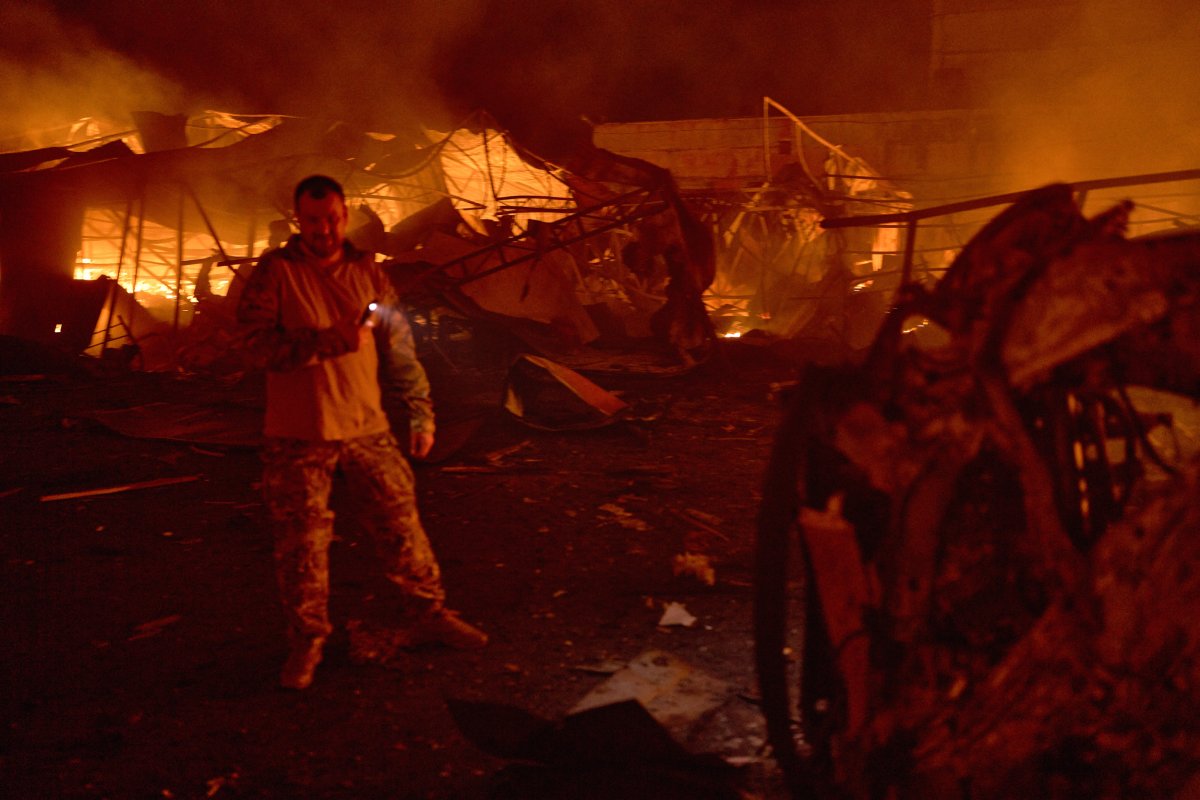Dutch and German intelligence services believe Russia is intensifying its use of chemical weapons in Ukraine, including the routine deployment of the chemical agent chloropicrin, which can be deadly when used in enclosed spaces.
The assessment was revealed by the Dutch Defense Ministry on Friday, July 4. It said the conclusion on Russia’s use of chloropicrin is shared by the Dutch military and general intelligence services, MIVD and AIVD, and Germany’s foreign intelligence service, the BND.
A spokesperson for Russia’s Permanent Representative to the Organization for the Prohibition of Chemical Weapons (OPCW) told Newsweek they have faced similar allegations since February 2022, but “then, as well as now, no evidence was presented.”
Chloropicrin is banned in war under the 1993 Chemical Weapons Convention (CWC), to which Moscow is a signatory. Russia is already widely using tear gas, the Dutch Defense Ministry said, and called the deployment of chloropicrin a “grave violation” of the CWC.
In 2024, the U.S. State Department had accused Russia of using chloropicrin against Ukrainian forces, and of having used “riot control agents as a method of warfare” in breach of the CWC.

A Ukrainian service member stands among the damage after a mass drone and missile attack by the Russian Federation on the capital on Kyiv July 4, 2025 in Kyiv, Ukraine.
A Ukrainian service member stands among the damage after a mass drone and missile attack by the Russian Federation on the capital on Kyiv July 4, 2025 in Kyiv, Ukraine.
Kostiantyn Liberov/Libkos/Getty Images
“The Western countries hid behind the universal wording—’according to our intelligence services’, and in reality they relied on false data provided by the Kiev regime,” the Russian spokesperson said over email.
“And now, if you take a close look at the notes circulated by the Ukrainian Permanent Mission to the OPCW and the statement by the Dutch Ministry of Defense, you will find virtually no differences.”
They added: “What is fundamentally important in this matter is that the previous U.S. administration and its European partners openly stated that if chemical weapons were used in Ukraine, they would blame Russia for everything.”
A spokesperson for the OPCW said its secretariat would need a formal request from state parties to investigate allegations of the use of toxic chemicals as weapons.
“So far, the Secretariat has not received any such request for action. We will continue to monitor the situation and maintain our readiness to deploy,” the OPCW spokesperson told Newsweek.
They directed Newsweek to three OPCW reports confirming the presence of the riot control agent CS near active conflict zones in Ukraine, the most recent of which was published on June 25, 2025.
Russia has previously denied using chemical weapons in Ukraine, with the Kremlin calling the allegations “completely baseless and unsubstantiated” and saying it “has been and remains committed to its obligations under international law.”
What Is Chloropicrin?
A fact sheet from the Johns Hopkins Center for Health Security says that while chloropicrin is less lethal than other choking agents, it “induces severe vomiting and excessive tear formation in its victims.”
The chemical agent “was used in large quantities in WWI, as more and more troops were sent into battle equipped with gas masks,” the fact sheet says.
“Chloropicrin could bypass gas masks and cause sneezing fits, causing soldiers to remove their masks, leaving them exposed to other dangerous and poisonous gases that could be mixed with the chloropicrin.”
Chloropicrin Use by Russia ‘Standard Practice’
The MIVD, AIVD, and BND said in their joint release that they see Russia’s military leadership and radiological, chemical, and biological defence troops support—and actively facilitate—the use of chemical agents.
The agencies said the use of teargas and chloropicrin by Russian troops “has now become standard practice and commonplace and will highly probably remain a threat in the future.”
They also said Russia is making “massive investments” into its chemical weapons program, expanding its research in this area, and recruiting new scientists.
Brekelmans: ‘This Is a Slippery Slope’
“Russia is going ever further in deploying chemical weapons. It is happening systematically and on a substantial scale,” said Dutch Defense Minister Ruben Brekelmans in a statement.
“This is a slippery slope. It is utterly unacceptable and again highlights the brutal aggressor Ukraine is facing.
“We are making this public now because the use of chemical weapons by Russia must not be normalized. If the threshold for deploying this type of weapon is lowered, it poses a danger not just to Ukraine, but to all of Europe and the world.
“More sanctions, further isolation of Russia, and unwavering military support for Ukraine are warranted.”
Update, 7/4/25, 11:35 a.m. ET: This article was updated with a statement by a spokesperson for the OPCW.
Update, 7/4/25, 10:25 a.m. ET: This article was updated with a statement by a spokesperson for the Russian Permanent Representative to the OPCW.
